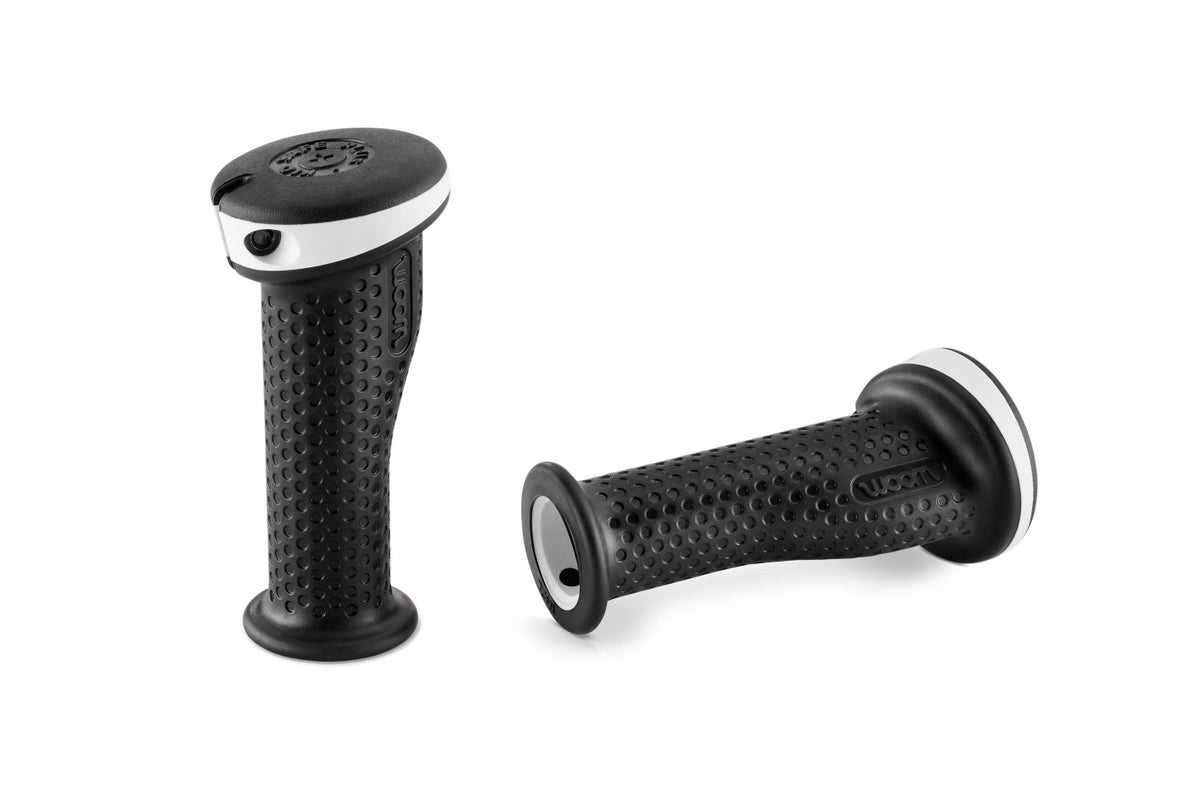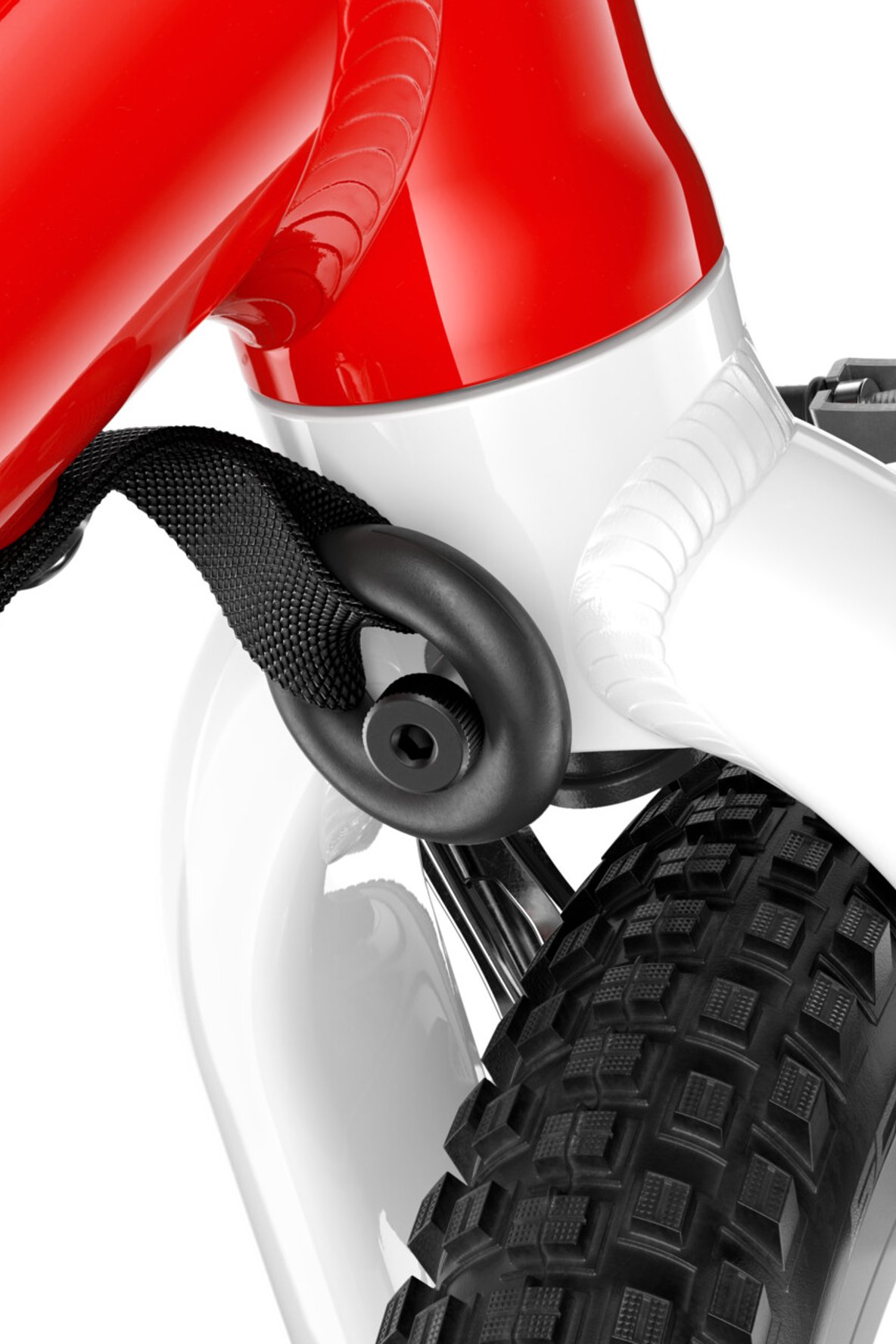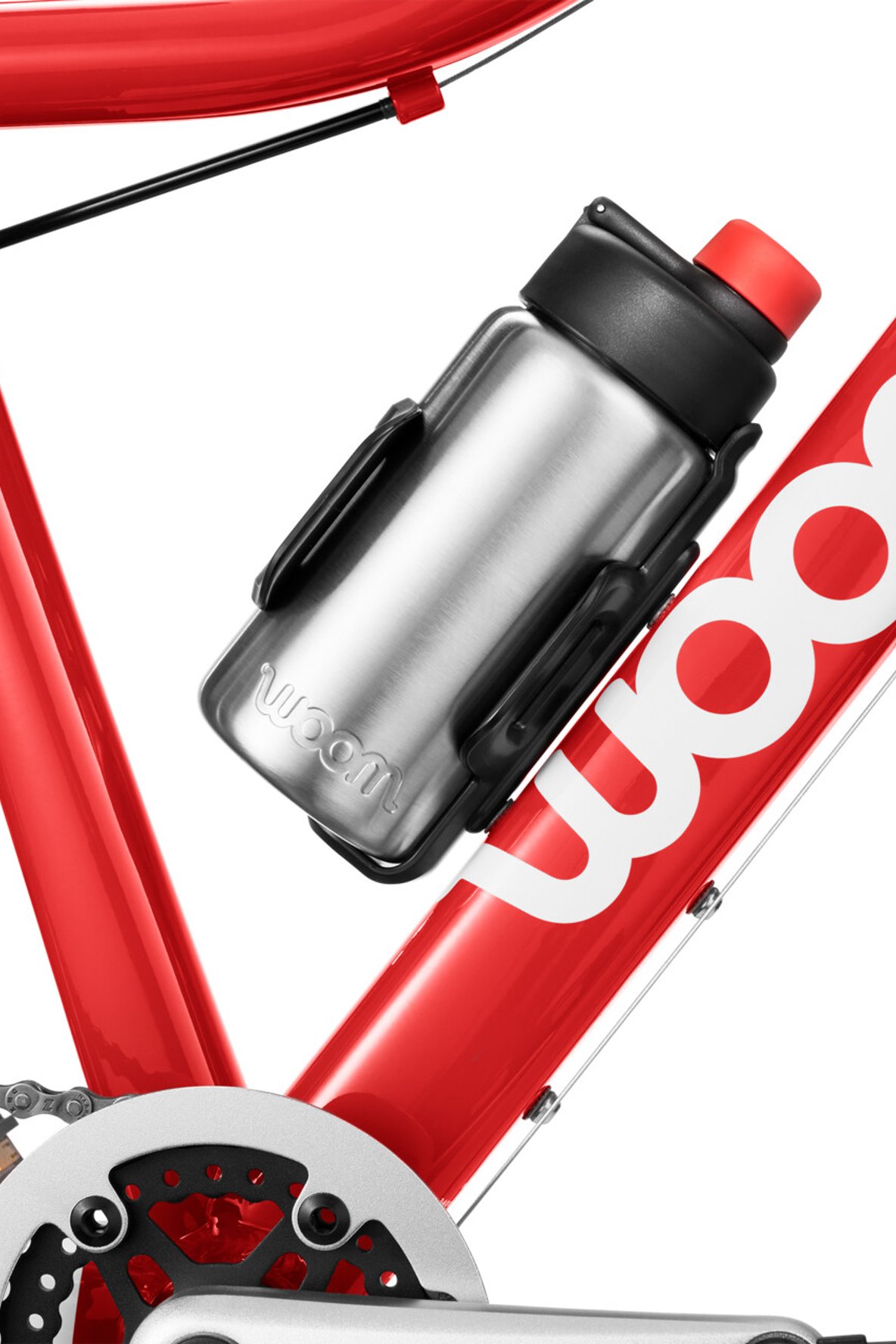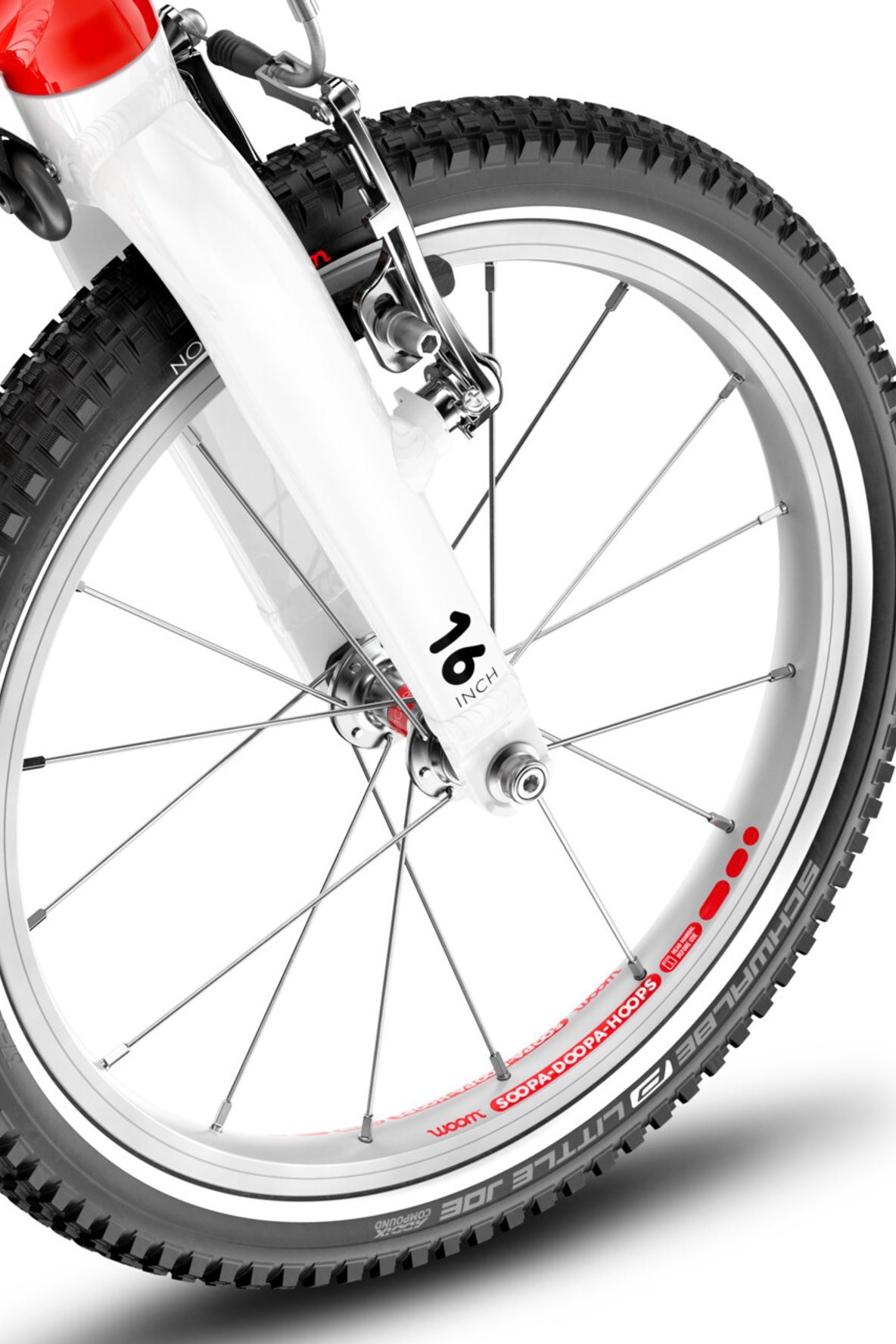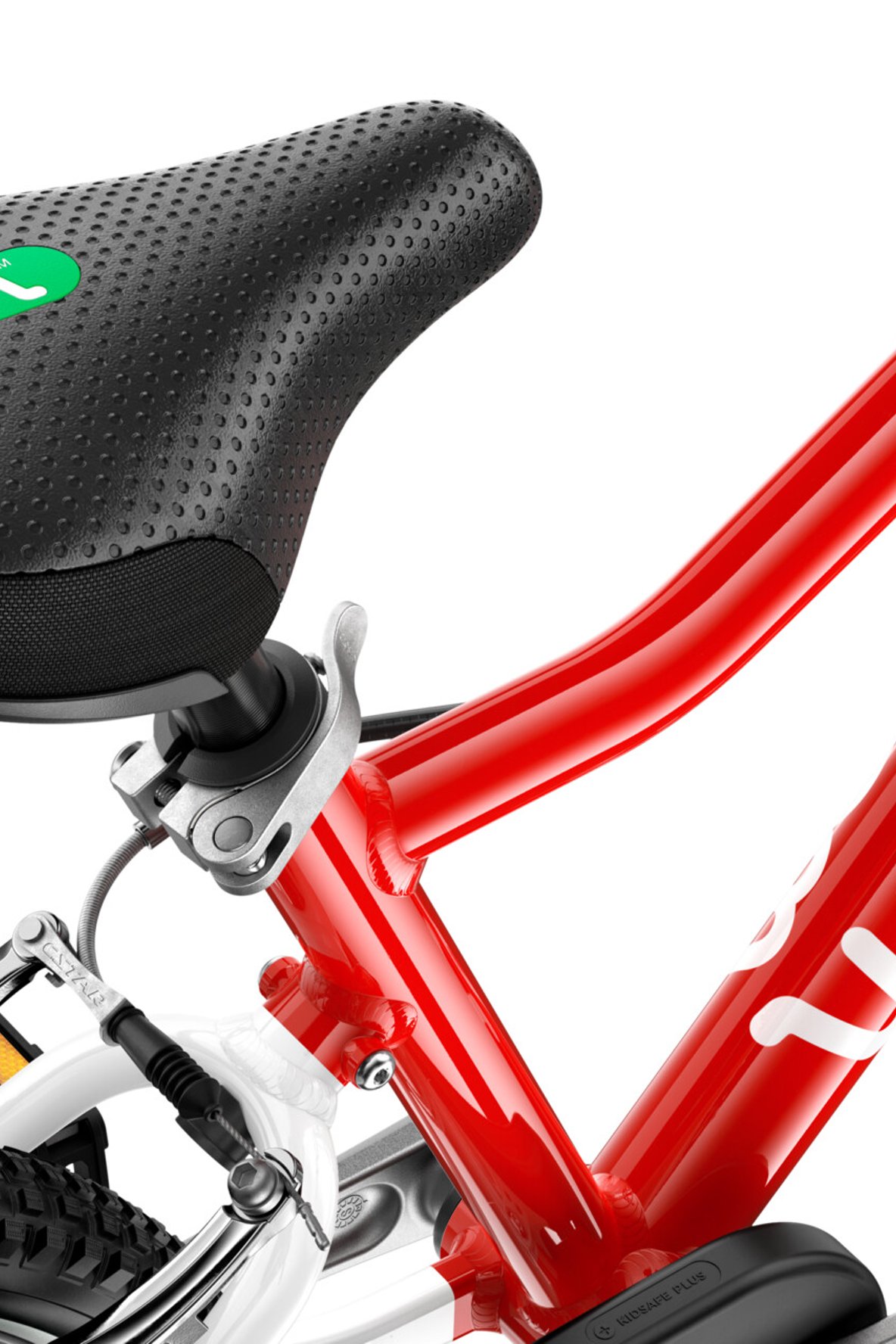What makes the components on our woom ORIGINAL bikes so special Part 4: The Drivetrain
For part four of this series, we're shifting our focus to the child-specific drivetrain on our woom ORIGINAL bikes. Keep reading to discover what this consists of and how we've engineered these components for the ultimate age-appropriateness.

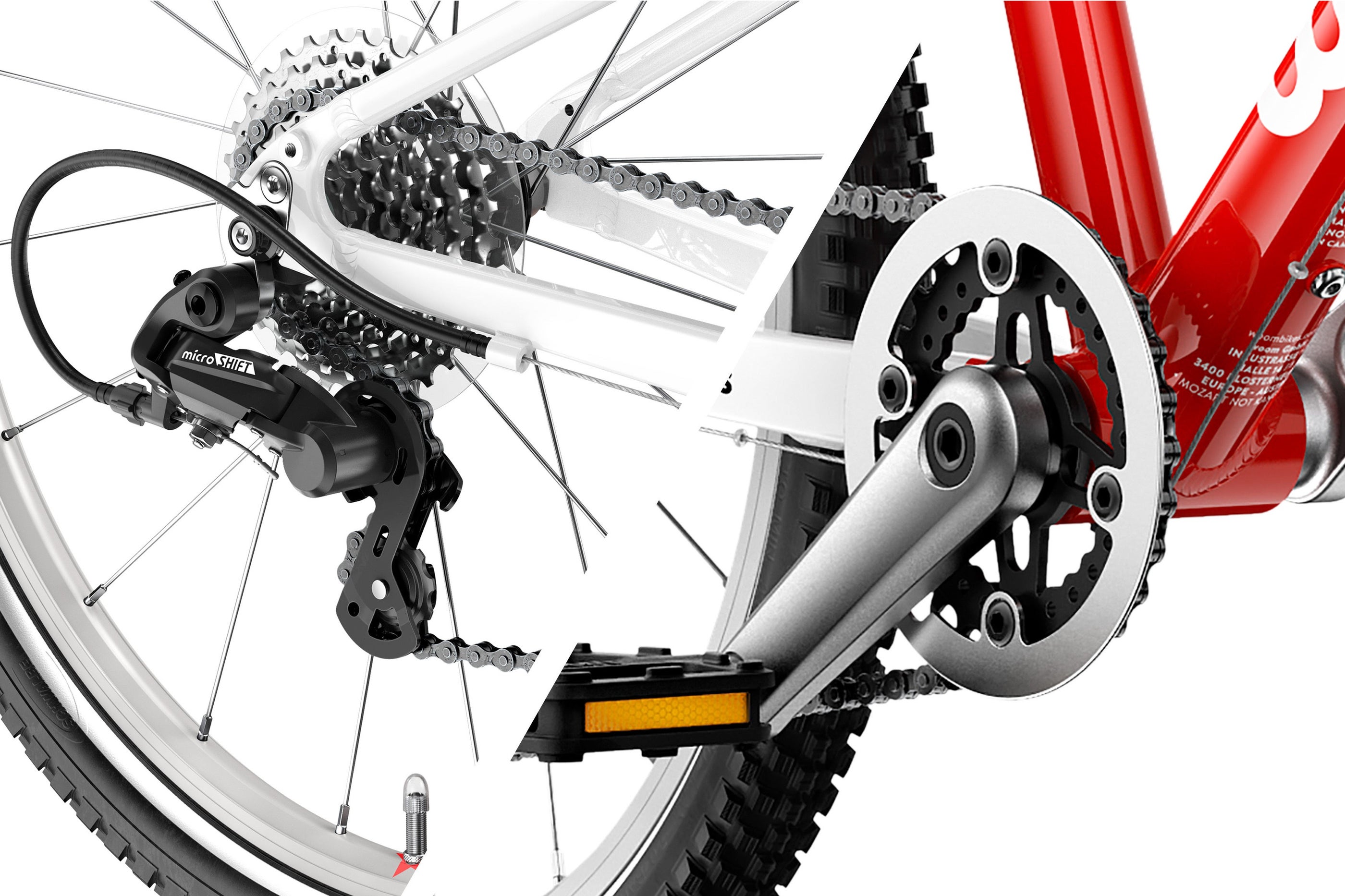
The drivetrain on our bikes consists of two cranks plus pedals, the front chainring and either one or more sprockets out back.
In-house research into pedals and cranks
The drivetrain on any woom ORIGINAL is the result of some serious data-crunching and exhaustive research into children's anatomies – feet, legs, hips, in particular – plus a child's capabilities and movement patterns across the ages.
Even before the first woom bike was created, our founders Marcus and Christian were already deep into the topic.
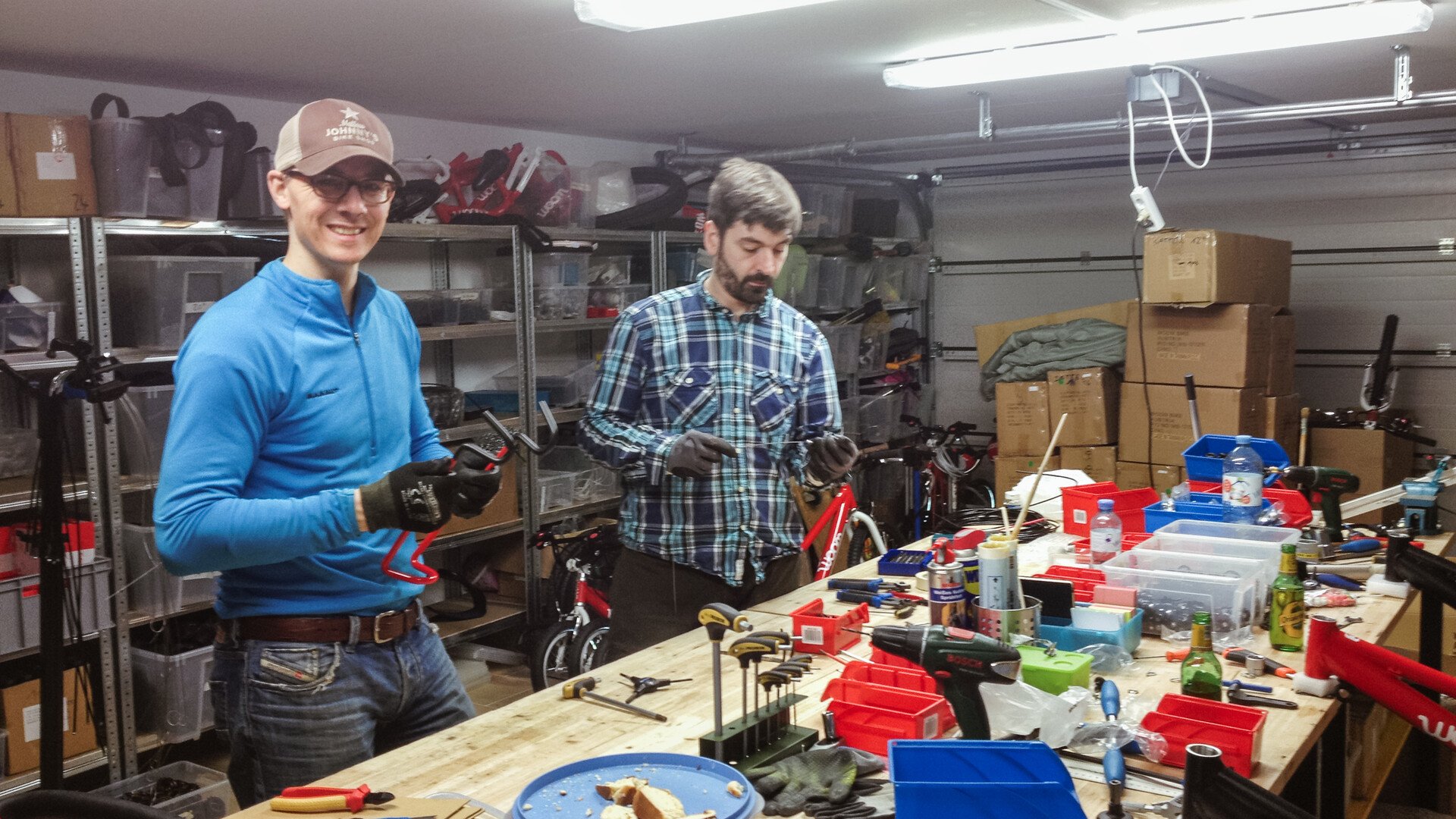
Marcus Ihlenfeld (l.) and Christian Bezdeka (r.) founded woom because they weren't satisfied with the options out there for their own kids.
The two fathers set about measuring children aged two to 16 years old, creating a database of dimensions that has informed our choice of cranks and pedals.
- Shorter legs demand proportionally shorter crank arms compared to conventional adult lengths.
- The distance between the pedals, known as the Q-factor, has to be narrower to suit child-sized hips.
The result? Natural movement patterns and optimal power transfer.
This design protects children's knees by eliminating the need for excessive knee angles when pedalling. Our move towards shorter cranks also takes away the risk of toe-overlap as well as unwanted pedal contact with the ground while cornering.
We put an equal amount of thought into the pedal size – they're flat and narrow, with a big surface area so that children get good grip even in wet conditions.
For more on the well-thought-out ergonomics of a woom ORIGINAL bike, check out this link.

Ergonomics matter: child-specific cranks team up with flat pedals that have a large surface area to provide grip.
Keeping the weight down and durability up thanks to high quality materials
The cranks on our woom ORIGINAL bikes are made with forged aluminium. This lightweight metal is robust, resistant to rust and – as we've mentioned once or twice – exceptionally light.
One way to make your child fall in love with riding is to ensure they're not carrying any unnecessary weight on their bike – as such, we do our utmost to make sure that every gram on a woom bike is there for a reason.
The flat pedals are made from high quality, anti-slip plastic, which is the most sensible choice for children due to its lightweight credentials.
Both sides of the pedals feature plastic pins for added grip.
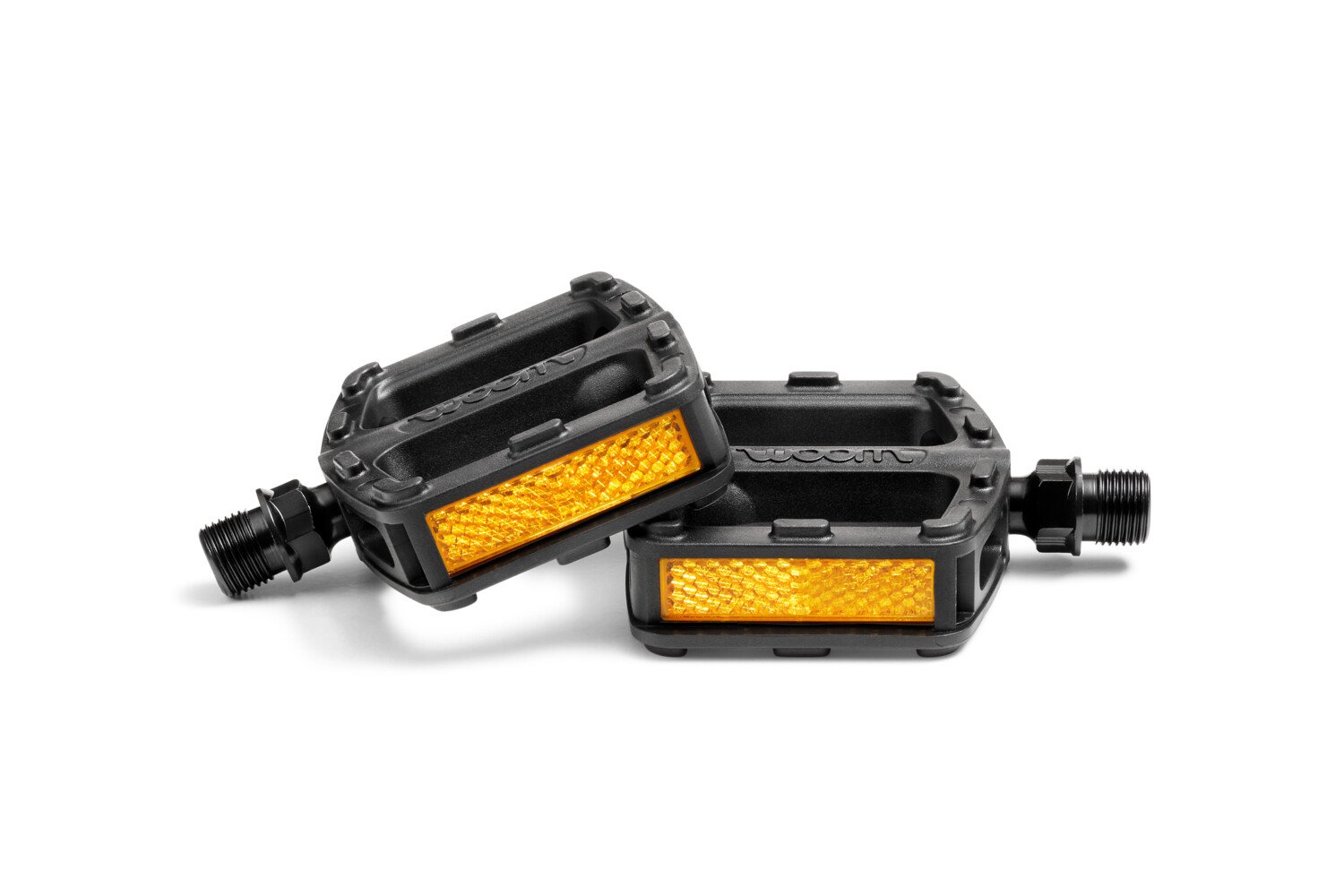
The pedals on a woom ORIGINAL bike feature integrated reflectors for added visibility.
Chainring and cassette with age-appropriate gearing
The specifics of the drivetrain – namely the size of the front chainring and the rear cassette – depend on the frame size and are determined by the rider's power transfer, riding speed and muscular strength as they develop.
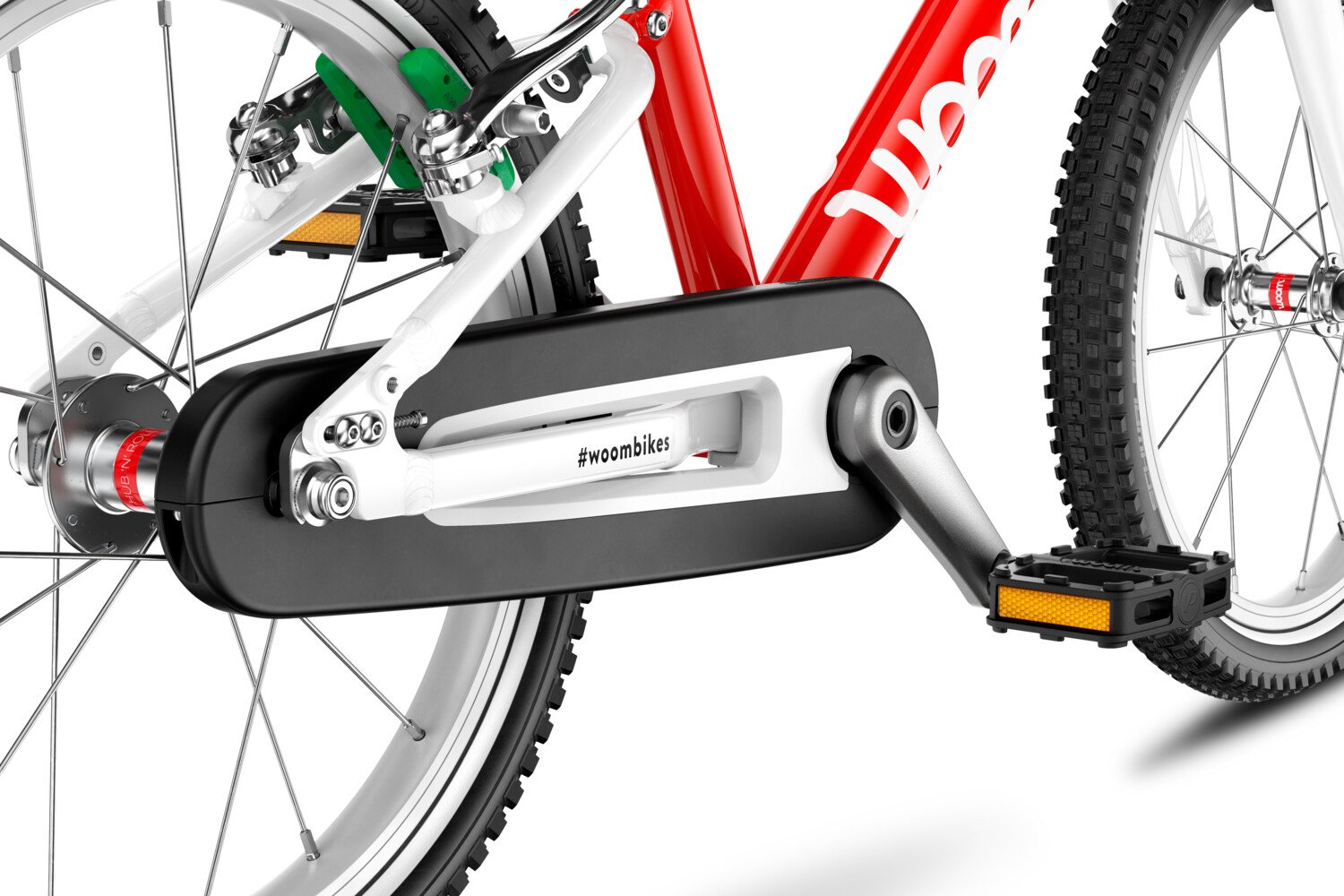

The sealed chainguard on the woom ORIGINAL 2 & 3 as well as the chainguard ring found on the woom ORIGINAL 4, 5 & 6 eliminate the risk of oily legs and chain-related injuries.
The drivetrain on the woom ORIGINAL 2 & 3
The chainring has 18 teeth and is combined with a 10-tooth sprocket at the rear to create the optimal gearing for a beginner.
Practical and stylish: the sealed chainguard keeps your child free from chain oil and chain-related injuries.
The drivetrain on the woom ORIGINAL 4 to 6
Our bigger bikes have a narrow-wide chainring with 28 teeth. By alternating between narrow and wide teeth, the chain stays more securely on the chainring, even over bumpy ground.
The size of the cassette depends on the number of gears – so, you've got seven sprockets on the seven-speed woom ORIGINAL 4 and eight on the eight-speed woom ORIGINAL 5 & 6. The sprocket sizes go from 11 up to 34 at their largest.
This spread of gears means that kids get a wide gear range to suit all scenarios. Plus, there's added protection around the chainring to eliminate the risk of loose trousers getting snagged.
The chainring is the ring at the front. The chain remains in contact with roughly three-quarters of it. It's attached to the right crank with a spider. The cassette refers to the group of sprockets at the rear. By shifting the chain up or down the cassette (onto bigger or smaller sprockets), you have control over the gear ratio, which is a benefit whether climbing, descending, and even riding on the flat.
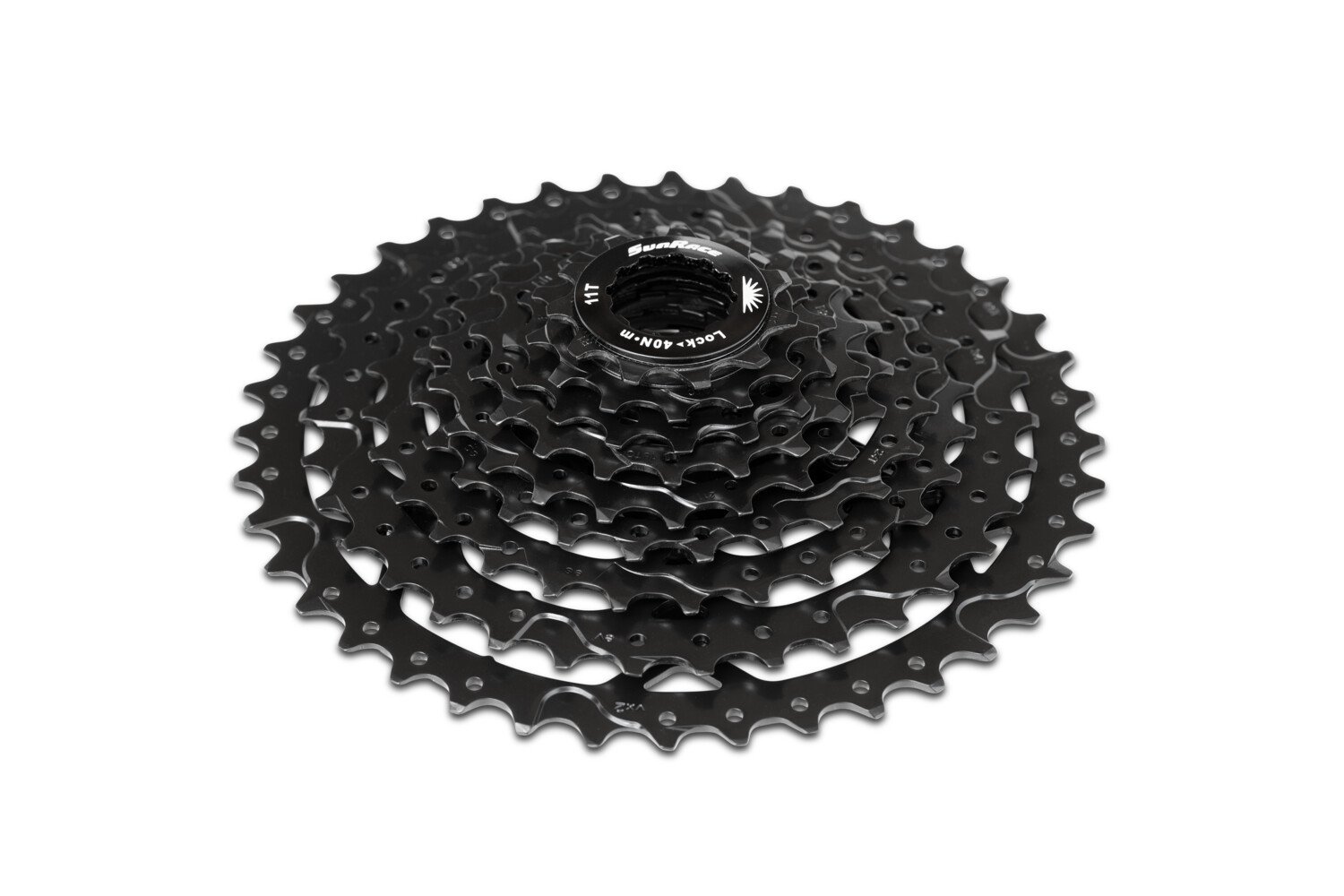
A cassette is made up of a number of sprockets.
